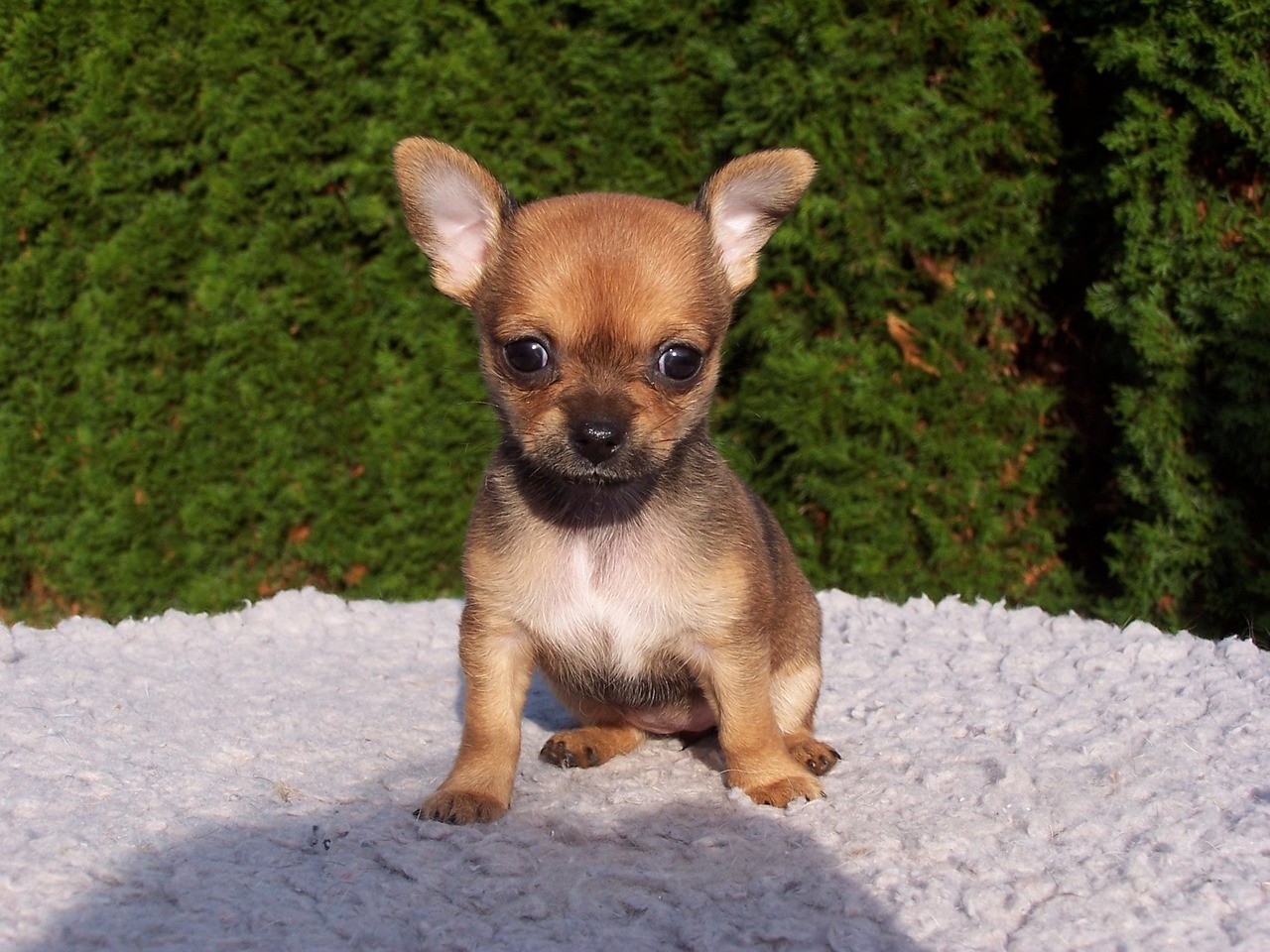Chihuahuas. The name itself conjures up images of tiny, trembling dogs in handbags, or perhaps fiercely yapping creatures guarding their owners with surprising tenacity. These diminutive canines are certainly characters, packed with personality that far outweighs their physical size. But when considering bringing one into your home, a crucial question arises: Are Chihuahuas Good Family Pets?
It’s a question with nuanced answers. While their unwavering loyalty and compact size can be incredibly appealing, especially for apartment living, Chihuahuas also come with specific needs and temperaments that require careful consideration, particularly in a family environment. Let’s delve into the world of Chihuahuas to explore whether these little dynamos are the right fit for your family.
Understanding the Chihuahua Temperament: What to Expect in a Family Setting
To determine if a Chihuahua is a good family pet, it’s essential to understand their typical temperament. Bred primarily for companionship, Chihuahuas exhibit a fascinating mix of traits that can be both endearing and, at times, challenging in a family dynamic.
Affectionate and Loyal Companionship
One of the most compelling reasons people are drawn to Chihuahuas is their intense loyalty and affection. They form incredibly strong bonds with their families, often attaching themselves particularly closely to one person. This devotion translates to cuddly lap dogs who thrive on attention and closeness. For families seeking a loving and constant companion, a Chihuahua can certainly fill that role, offering endless snuggles and unwavering support.
Protective Instincts and Potential for Yappiness
That strong bond can also manifest as protectiveness, sometimes bordering on possessiveness. Chihuahuas, despite their size, can be surprisingly vigilant watchdogs, alerting their families to any perceived threats – which can sometimes include friendly visitors or even the mail carrier! This protectiveness, coupled with their tendency to be vocal, can lead to excessive barking if not properly managed. While some families may appreciate an alert dog, excessive “yappiness” can be a concern in busy family homes or apartment living.
Playfulness and Energy Levels
Don’t let their lap dog reputation fool you – Chihuahuas are also playful and energetic little dogs. They enjoy games and bursts of activity, often exhibiting surprising speed and agility. This playful side can be a real joy for families, adding fun and entertainment to daily life. However, their energy is usually exerted in short bursts. They are not dogs built for endurance and are quite content with shorter play sessions interspersed with plenty of rest and relaxation.
Chihuahuas and Children: A Compatibility Guide
The question of whether Chihuahuas are good family pets often hinges on their compatibility with children. While loving and devoted to their families, their tiny size and sensitive nature necessitate careful consideration when it comes to kids.
Best Suited for Older, Gentle Children
Generally, Chihuahuas are better suited to families with older children who understand how to interact respectfully with a small and delicate dog. Younger children, even with the best intentions, may be too boisterous or clumsy, potentially leading to accidental injuries. A Chihuahua’s small frame makes them vulnerable to being dropped, stepped on, or squeezed too tightly, which can result in fear, anxiety, or even defensive biting.
Teaching Children How to Interact with Chihuahuas
If you have younger children and are considering a Chihuahua, thorough education is key. Children need to be taught how to handle a Chihuahua gently and respectfully. This includes no chasing, pulling tails, or picking them up without proper support. Creating “safe spaces” for the Chihuahua, like a crate or bed where they can retreat undisturbed, is also crucial.
Supervision is Key
Regardless of age, supervision is always necessary when children and Chihuahuas are interacting. This ensures the safety and well-being of both child and dog. Supervision allows parents to intervene if play becomes too rough or if the Chihuahua shows signs of stress or discomfort. It’s about fostering a positive and safe relationship built on mutual respect and understanding.
Socialization and Training: Essential for Family Harmony
Proper socialization and training are paramount for any dog, but especially crucial for Chihuahuas to thrive in a family environment. These small dogs can be prone to anxiety and fear-based reactivity if not well-socialized and trained.
Early Socialization with People and Other Pets
Early socialization is vital to help Chihuahuas become well-adjusted family members. Exposing them to a variety of sights, sounds, people, and other animals from a young age helps them develop confidence and reduces the likelihood of fear or aggression. Positive experiences during puppyhood will shape their future interactions and make them more adaptable to family life.
Positive Reinforcement Training
Chihuahuas respond best to positive reinforcement training methods. Using rewards like treats, praise, and toys motivates them to learn and strengthens the bond between dog and owner. Consistency and patience are key, as Chihuahuas can sometimes be stubborn or easily distracted. Training not only teaches them basic commands but also helps establish clear boundaries and expectations within the family.
Addressing Potential Behavioral Issues
Addressing potential behavioral issues early on is essential. Chihuahuas, if not properly trained, can develop behaviors like excessive barking, resource guarding (protecting toys or food), or even snapping out of fear. Early intervention and consistent training can help manage these tendencies and ensure a harmonious family environment. Seeking guidance from a professional dog trainer or behaviorist can be beneficial if you encounter challenges.
Chihuahua Care Needs: Practical Considerations for Families
Beyond temperament and training, practical care considerations play a significant role in determining if a Chihuahua is the right family pet. Their needs, while relatively low-maintenance in some areas, still require family commitment.
Exercise and Activity Levels for Family Life
Chihuahuas are not demanding in terms of exercise. Short daily walks and indoor playtime are usually sufficient to meet their needs. This makes them well-suited for families with busy schedules or those living in apartments. However, they do enjoy playing and benefit from mental stimulation to prevent boredom. Interactive toys, puzzle feeders, and short training sessions can keep their minds engaged and bodies active within a family setting.
Grooming Needs in a Family Context
Grooming a Chihuahua is generally straightforward. Short-haired varieties require minimal brushing, while long-haired Chihuahuas benefit from regular brushing to prevent mats. Nail trimming, dental care, and occasional baths are essential for all Chihuahuas. Involving children in age-appropriate grooming tasks, under supervision, can be a fun way to bond with the dog and teach responsibility.
Health Considerations and Family Preparedness
Like all breeds, Chihuahuas are prone to certain health issues. Being aware of these potential conditions is crucial for families considering this breed. Dental problems, patellar luxation (kneecap dislocation), and heart conditions are among the concerns. Regular veterinary check-ups, a healthy diet, and proper exercise can help mitigate some of these risks. Families should be prepared for potential veterinary costs and be committed to providing the necessary healthcare throughout the Chihuahua’s life.
The Pros and Cons of Choosing a Chihuahua for Your Family
Ultimately, deciding if a Chihuahua is a good family pet involves weighing the pros and cons in relation to your specific family dynamics, lifestyle, and expectations.
Advantages: Size, Affection, Adaptability
Pros:
- Compact Size: Ideal for apartment living and smaller homes. Easy to travel with and manage in various family settings.
- Affectionate and Loyal: Forms strong bonds and provides constant companionship.
- Relatively Low Exercise Needs: Suits families with busy lifestyles.
- Long Lifespan: Offers many years of companionship.
Disadvantages: Fragility, Temperament Challenges, Training Needs
Cons:
- Fragility: Not ideal for very young children or overly boisterous environments due to risk of accidental injury.
- Potential Temperament Challenges: Can be yappy, protective, or anxious if not properly socialized and trained. May be reserved with strangers.
- Training and Socialization Requirements: Requires consistent training and early socialization to be well-adjusted family members.
- Health Concerns: Prone to certain health issues that may require ongoing care and expense.
Chihuahuas can get along with other pets when properly introduced and socialized. However, their small size requires careful consideration in multi-pet households.
Final Thoughts
So, are Chihuahuas good family pets? The answer isn’t a simple yes or no. Chihuahuas can be wonderful family companions, particularly for families with older, more gentle children, or for individuals and couples seeking a devoted and portable pet. Their affectionate nature, playful spirit, and manageable size are undeniable advantages.
However, families with very young children need to carefully consider the Chihuahua’s fragility and potential temperament challenges. Commitment to socialization, training, and understanding their specific needs is crucial for success. With the right family, willing to provide gentle guidance, consistent training, and a loving environment, a Chihuahua can indeed be a cherished and rewarding member of the family, proving that sometimes the biggest love comes in the smallest packages.
Sources:
[1] https://www.akc.org/expert-advice/dog-breeds/chihuahua-history-aztec-companion/
[2] https://www.akc.org/dog-breeds/chihuahua/


